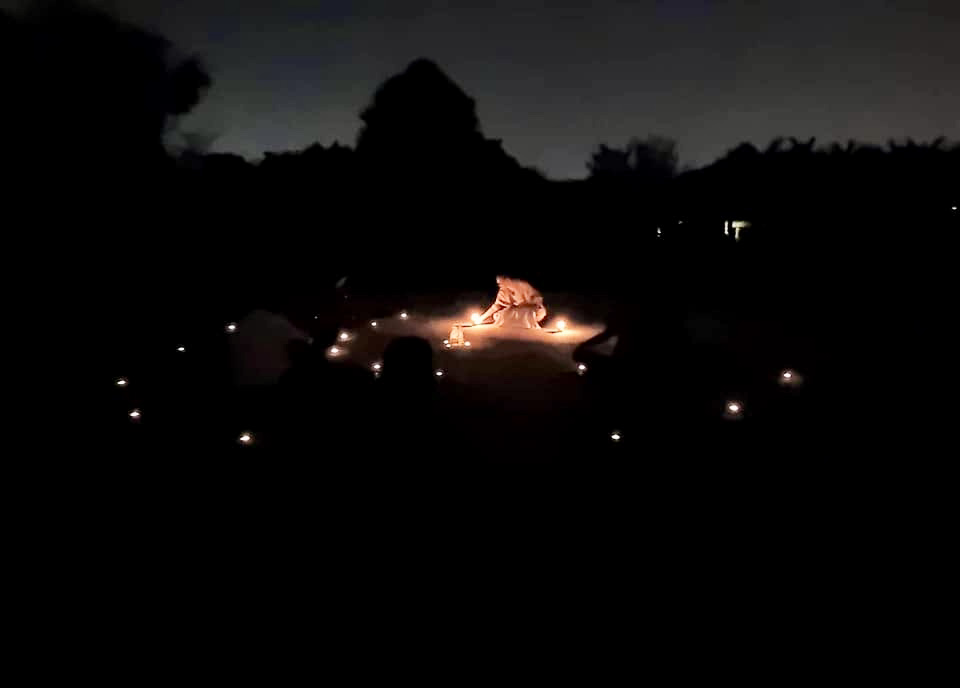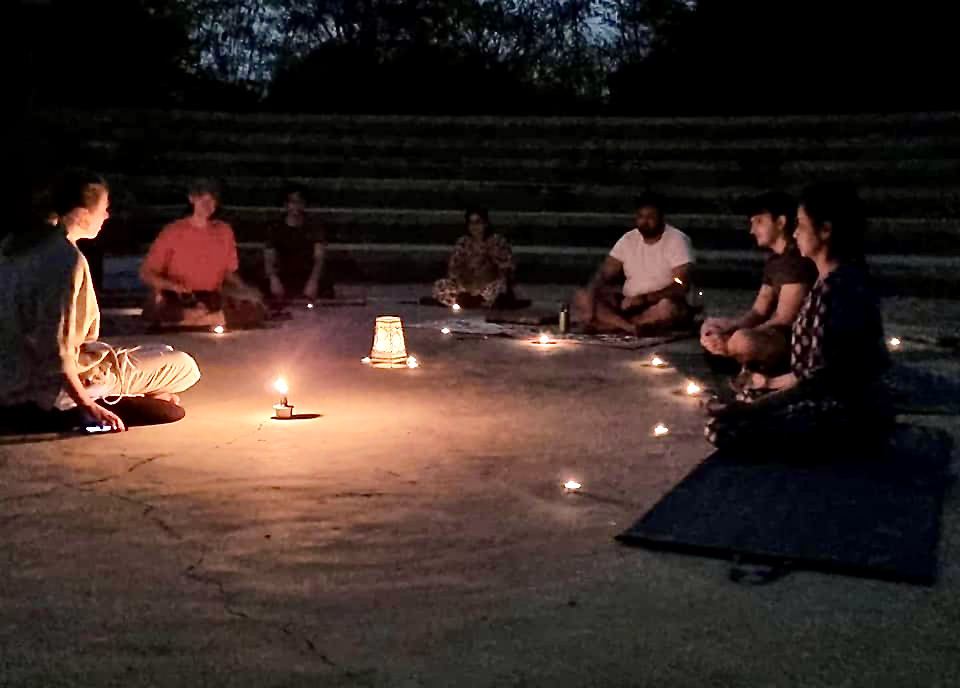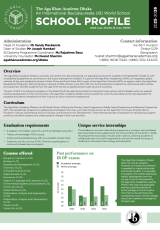Mindfulness: Being alive and noticing it
On Saturday, 27 March 2021, the students and staff on campus at the Aga Khan Academy Hyderabad participated in a mindfulness event as part of the Action for Happiness' Mindful March project, which is a movement committed to developing a happier and caring society and has themes for each month on how to do so. The event at AKA Hyderabad also commemorated Earth Hour 2021, which fell on this day and which calls for people to switch off all of their lights in solidarity with the Earth and in recognition of the impacts of climate change on the planet. Here, we hear from Personal Counsellor at AKA Hyderabad Dr Isabelle Didsbury, who led the event, about the event and the students' reactions to it all.
As part of Action for Happiness’ Mindful March and in solidarity with Earth Hour 2021, we recently hosted a live meditation for our on-campus community.
With the help of our operations team, we plunged the campus into darkness, lit candles and gathered under the moonlight. Guided in meditation, our staff and students travelled the globe – calling to mind their favourite place on Earth and extending their gratitude for this place and to every inch of our planet. Together we reflected on the wondrous gift that is this Earth and the many resources it provides us. I ask you today, as I asked our community on Saturday: if we walked through the world with intentional gratitude, how might we be called to act? What might we give back and offer? What might we stop taking? As part of Earth Hour, we reflected on our responsibility to this place we call home, renewing our commitment to care for the Earth and each other.
Here at the Academy, we see mindfulness not as a tick box or quick fix but rather as a practice to engage with over time and with open-ended curiosity. We invite students and staff to discover mindfulness for themselves, uncovering the unique possibilities and insights that it presents to each individual.
In January of this year, a group of Diploma Programme 2 students signed up for a mindfulness course facilitated by myself. As we began, I noticed a classic misconception amongst some of our students: the idea that mindfulness is about emptying the mind of thoughts – a somewhat daunting task! Jon Kabat-Zinn, one of the founding fathers of secular mindfulness, tells us that mindfulness is simply “being alive and noticing it”. Mindfulness is about cultivating an attitude of curiosity for our experiences, and fundamentally, a curiosity that is accompanied by kindness, not the guilt that comes with failing at an impossible task like emptying the mind.
Reflecting on this training, one of our students wrote:
“There are a lot of uncertainties about the future and worries about the past, these mindfulness sessions have taught me the ways in which I can focus on the present and be calm.” – Asawari Bhagwat
She said her favourite session was in which students were invited to play (rather than pay) attention. As Asawari wisely says, “We cannot control the situation which is unfavourable (or not) but we can control our response to it.”
Over the last 3 months, we have filled out toolboxes with a variety of practices – mindfulness of breath, of sounds, mindful walking, eating, sharing gratitude and many others. This systematic and comprehensive training of mind and heart helps us experience from an embodied perspective the joys that can come from living in the present. As Master Oogway from the film Kung Fu Panda tells us:
"Yesterday is history.
Tomorrow is a mystery,
But today is a gift. That is why it is called the present."
Mindfulness is a practice, not a perfection – so I invite you all to give it a go and to keep giving it a go, even when the experience doesn’t quite meet your expectations. And for anyone experiencing challenges in these times, taking heed of these words from another DP2 student who says of his experience:
"The sessions helped me put my mental state back to the present and taught me to experience it. I realised while we never laugh at the same joke again, why do we get anxious about the same problem/challenge again and again; and that made a difference." – Abhi Keerthan






